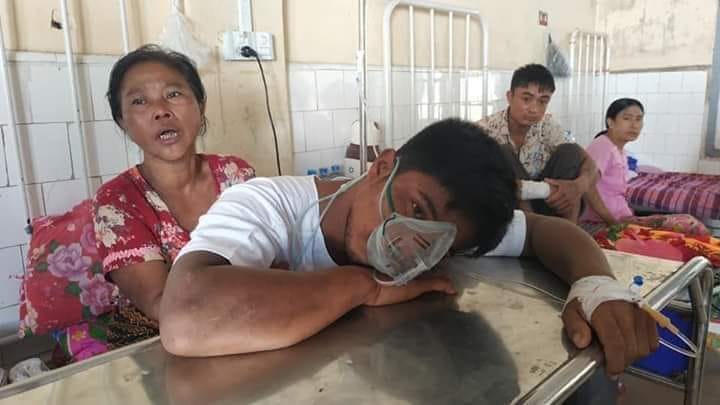
A detainee in Myanmar's Rakhine state died from injuries allegedly sustained in custody, his family said, as the army wages war against rebels in the same area which saw the 2017 mass expulsion of Rohingya Muslims.
Myanmar's army has deployed thousands of troops to the troubled western state in recent months to try to crush Arakan Army (AA) insurgents, who say they are fighting for more autonomy for ethnic Rakhine Buddhists.
The military has cut off whole villages and rounded up locals for interrogation as it tries to flush out AA members and sympathisers.
Zaw Win Hlaing, 28, was detained on June 19 in Mrauk U township, his mother told AFP by phone.
Five days later he was sent to a local hospital before being transferred for treatment in the state capital, Sittwe.
But his condition deteriorated and he died on Monday, local media reported.
His mother confirmed Wednesday her son's death, saying he had coughed up "huge amounts of blood."
"My son told me they beat and tortured him by hitting his back with a longyi packed with stones," Thein Nu Sein said, sobbing.
Army spokesman Brigadier General Zaw Min Tun told AFP he had heard the accusations about Zaw Win Hlaing's death, adding any official complaint would be investigated.
He insisted torture is "banned" during military interrogations.
Northern Rakhine is under complete lockdown as well as a government-imposed internet blackout, making any independent reporting difficult.
On Tuesday in Geneva, UN Special Rapporteur Yanghee Lee warned abuses on both sides of this latest conflict "may amount to war crimes."
Dozens of civilians have been caught in the crossfire, even while sheltering in monasteries.
The army confirmed it shot dead six Rakhine detainees in late April, saying its forces acted in self-defence.
Rights groups are calling for independent investigations into the deaths of at least 14 civilians who died in or shortly after being held in military custody.
"The military is operating in Rakhine state with total impunity," said John Quinley from Fortify Rights.
More than 35,000 people are believed to have fled their homes and nearly 100,000 are without access to basic services.
Northern Rakhine was also the epicentre two years ago of the military's brutal crackdown against the state's Rohingya Muslim population.
Some 740,000 Rohingya fled over the border into Bangladesh in violence UN investigators have said warrants the prosecution of top generals for "genocide."

